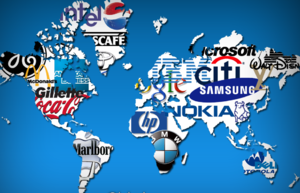The Divide between the Global North and the Global South as a Result of Neoliberalism
Introduction
Since the 1970s, the Global North has politically and economically dominated regions within the Global South through neoliberal principles. Some scholars, such as the University of British Columbia's political science professor, Allen Sens, argue that neoliberalism, or global capitalism, acts as an instrument of core countries as a means in increasing domestic wealth, leading to the political and economic underdevelopment in countries that are outside of those located within the Global North[1]. As a result, the divide between the Global North and the Global South, in response to neoliberal principles, have insinuated numerous health disparities, specific to each global region.
Neoliberalism
Neoliberalism is the result of the effects imposed by globalization in a classical liberal economic system. Neoliberalism is associated with the principles of a free market society, heavily focused on economic deregulation and privatization. Increases in the speed of communication, commerce, and travel are what transformed nineteenth century classical liberalism in to modern-day neoliberalism. In the 1960s and the 1970s, the term grew recognition as it served as a potential explanation for why some countries continued to prosper while others did the opposite and continued to fall short politically and economically[1].
Globalization and Global Health
Principles of neoliberalism have displayed a hinderance on the improvements of international health, or recognized by others under the name "global health:" "an area for study, research, and practice that places a priority on improving health and achieving equity in health for all people worldwide"[2]. Neoliberalism, with its foundation deeply imbedded in the principles of laissez-faire and economic liberalization, has stimulated the economic integration of globalization and foreign participation[3]. The notion of "economic openness" has created opportunities for wealthy regions located within the Global North to exploit regions of the Global South. Countries of the periphery provide resource-extraction economies, cheap labor, and agricultural production, all of which the Global North thrives on to increase domestic wealth. The fundamental principles of "economic openness" and laissez-faire equate to a world of economic competition.
Health Effects on the Global South
Neoliberalism values economic growth over ethical principles. The "for-profit" system advocates for efficiency and cost-saving attributions, ignoring concerns in respect to the health and the human rights of those living in the Global South. Regions within the Global South provide resource-extraction economies, cheap labor, and agricultural production, all in which the Global North capitalizes on as a means in increasing the wealth in the region: more specifically, increasing the wealth of the elites of the Global North. For these reasons, along with large investment from the Global North into regions of the Global South, the relationship between the two regions has become one that is interdependent, where both regions have become reliant on one another. Health concerns as a consequence of neoliberalism are results of the lack of adequate regulation of manufacturing and extractive industries in regions outside of the "high-income world"[3]. The lack of effective regulation in such industries have contributed to harsh working conditions. Regions in the Global South experience child labor and overwork. Researchers from University College London found that individuals "who worked more than 55 hours per week had a 13% greater risk of a heart attack, and were 33% more likely to suffer a stroke, compared with those who worked 35-40 hours per week"[4]. Harvard Health suggests that "overwork and work stress are also associated with many cardiac risk factors," insisting that "those who work long hours tend to have unhealthy lifestyles, with less [opportunity to] exercise, worse diets, and higher consumption of alcohol and tobacco"[4].
Long work hours can also account for a lack in proper guardianship. Caregivers obtain less opportunity to provide in-person supervision for children, potentially affecting a child's physical and psychiatric health.
According to "Neoliberalism and Health: The Linkages and the Dangers," statistical evidence displays that countries in sub-Saharan Africa experience "higher child mortality rates during periods when countries were operating under World Bank, IMF, or African Development Bank structural adjustment conditionalities"[3].
Health Effects on the Global North
In addition to the threats that a neoliberal system imposes on the Global South, countries of the Global North also encounter a number of risks. A neoliberal economic system permits privatization and competition. On an international level, neoliberalism has displayed that it has the ability to promote underdevelopment in regions of the Global South. In addition, neoliberalism has the capacity to impose harmful effects among individuals in regions of the Global North through the concept of competition. The fundamental principles of neoliberalism take into consideration the notion posed by English philosopher John Locke insisting that humans perform best under competition[5]. Under a free and competitive market, efficiency is encouraged and consumers are, generally, provided with better and a greater selection of products. While the idea of a free and competitive market provides benefits for the consumer, it is important to understand that the political economic system promotes freedom in the context of liberty as opposed to equality. A neoliberal system provides participants of the market with the liberty to participate freely, but does not necessarily provide freedom in terms of equality as the system exploits those who work in regions of the Global South. Domestically, the system also exhibits the notion that as the rich get richer, the poor get poorer. According to "Neoliberalism and Health: The Linkages and the Dangers," "neoliberal principles have increased economic inequality and insecurity, often accompanied by increases in poverty" wherever they have been implemented[3].
Competition can act as a stressor. In the event that an individual needs to be competitive to succeed and live a comfortable life, that individual may experience financial pressure further contributing to a sensation of anxiety. To cope with the stress, individuals may turn to habits that temporarily mask the issues that are faced. Some individuals may turn to mind-altering substances as a means in managing their anxieties and frustrations. In a research study performed at the University of California, Los Angeles, findings suggest that "intoxication prior to stress exposure may alter the cognitive reaction to the stimulus and, as a result, the response to the stressful stimulus may be minimized. Thus, it may be that alcohol does not merely dampen the stress response but that alcohol may also act to reduce the physiological response to a stressor by altering the appraisal of the stressful stimulus"[6]. This finding validates that a negative correlation exists between alcohol consumption and stress. Alcohol, a depressant, also can aid the inability to sleep: a byproduct of stress. Some individuals may turn to smoking as a method in coping with stress. F J McClernon and D G Gilbert report that smokers understand smoking to be "effective at ameliorating... undesirable cognitive or affective states"[6]. In addition, smokers reported that smoking "enhance[d] stimulation, cognitive performance, and pleasure"[6]. The effect of enhanced cognitive performance may act as a contributor to why individuals turn to smoking as a way to become a more competitive participant in a market that requires ambition.
In the United States, a country located within the Global North, smoking prevails to be the highest preventable cause of death and disability[6].
References
- ↑ 1.0 1.1 Dependency Theory, 2012 https://www.youtube.com/watch?v=JN6LlMY2ApQ
- ↑ Towards a common definition of global health, 2009 http://www.thelancet.com/journals/lancet/article/PIIS0140-6736(09)60332-9/fulltext
- ↑ 3.0 3.1 3.2 3.3 Neoliberalism and Health: The Linkages and the Dangers, 2016 http://onlinelibrary.wiley.com.ezproxy.library.ubc.ca/doi/10.1111/soc4.12408/epdf
- ↑ 4.0 4.1 Only the overworked die young, 2015 https://www.health.harvard.edu/blog/only-the-overworked-die-young-201512148815
- ↑ Locke's Moral Philosophy, 2016 https://plato.stanford.edu/entries/locke-moral/
- ↑ 6.0 6.1 6.2 6.3 Stress Consequences: Mental, Neuropsychological and Socioeconomic, 2010 https://books.google.ca/books?hl=en&lr=&id=E20HsuKHxaEC&oi=fnd&pg=PA214&dq=smoking+and+stress&ots=8NctQotfr4&sig=h65FpFpYDH66FdArSuQnO0OIel0#v=onepage&q&f=false
Submitted by: Adan C. Barclay


